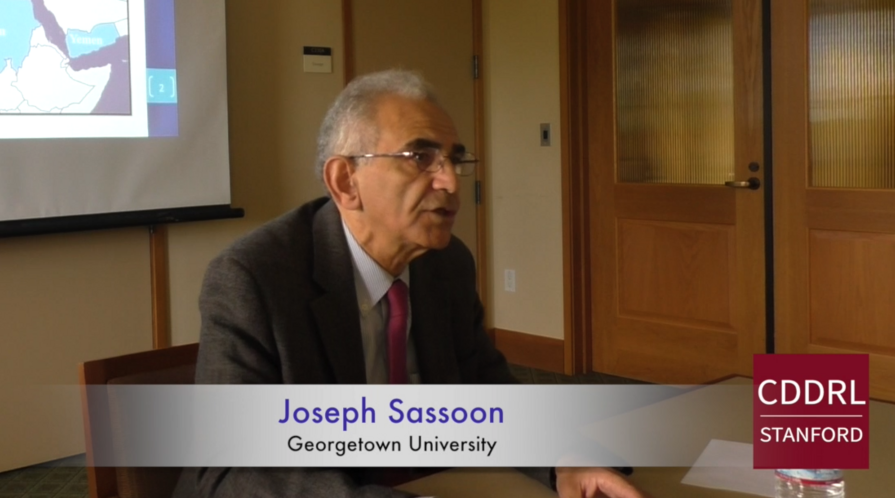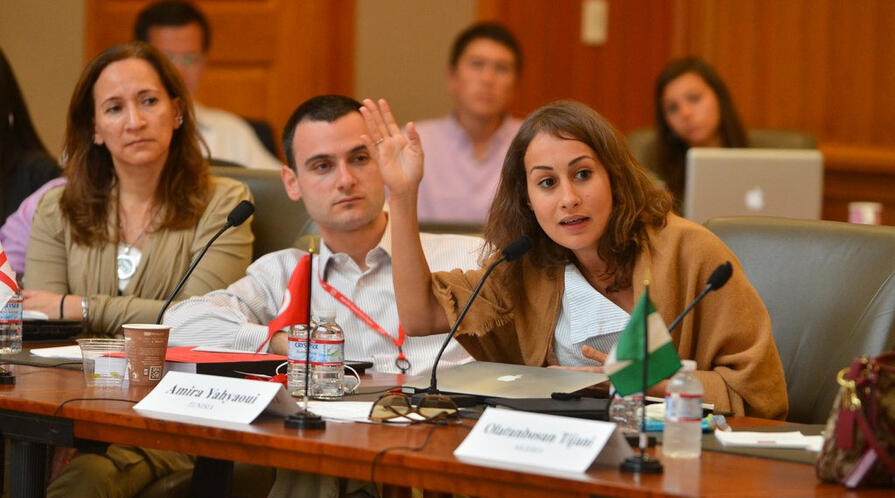Tunisia: An Arab Anomaly
This event is co-sponsored with The Abbasi Program in Islamic Studies.
ABSTRACT
The Arab Spring began and ended with Tunisia. In a region beset by brutal repression, humanitarian disasters, and civil war, Tunisia's Jasmine Revolution alone gave way to a peaceful transition to a functioning democracy. Within four short years, Tunisians passed a progressive constitution, held fair parliamentary elections, and ushered in the country's first-ever democratically elected president. But did Tunisia simply avoid the misfortunes that befell its neighbors, or were there particular features that set the country apart and made it a special case? How does the country consolidate its democratic gains as civil society and government priorities clash over issues of security, transitional justice, and economic reform?
Drawing on his recent book, Tunisia: An Arab Anomaly (Columbia University Press, 2017), Professor Safwan Masri will examine the factors that contributed to Tunisia’s experience after the Arab Spring, focusing on the country’s history of reformism in the domains of education, religion, and women’s rights. Masri will argue that the seeds fortoday's relatively liberal and democratic society were planted as far back as the middle of the nineteenth century. These factors have not only been missing in other Arab counties, but an opposite, regressive trajectory has been followed in much of the rest of the region.
SPEAKER BIO

Professor Safwan M. Masri is Executive Vice President for Global Centers and Global Development at Columbia University, and a Senior Research Scholar at Columbia’s School of International and Public Affairs (SIPA).
Copies of Tunisia: An Arab Anomaly will be available for purchase.
[[{"fid":"229934","view_mode":"crop_870xauto","fields":{"format":"crop_870xauto","field_file_image_description[und][0][value]":"Safwan Masri poster","field_file_image_alt_text[und][0][value]":false,"field_file_image_title_text[und][0][value]":false,"field_credit[und][0][value]":"","field_caption[und][0][value]":"","thumbnails":"crop_870xauto","alt":"","title":""},"type":"media","field_deltas":{"2":{"format":"crop_870xauto","field_file_image_description[und][0][value]":"Safwan Masri poster","field_file_image_alt_text[und][0][value]":false,"field_file_image_title_text[und][0][value]":false,"field_credit[und][0][value]":"","field_caption[und][0][value]":"","thumbnails":"crop_870xauto","alt":"","title":""}},"link_text":null,"attributes":{"class":"media-element file-crop-870xauto","data-delta":"2"}}]]
William J. Perry Conference Room,
Encina Hall (Central), 2nd Floor, 616 Serra St,
Stanford, CA 94305











